
Library One-Liners

Reading Jester
On Sat, 27 Apr 2013 ~ Sana Moulder in Fayetteville, NC asked Publib:
I’m seeking library patron one-liners for a project. I’d like questions and requests such as:
“I need a photograph of Jesus Christ,” or “I need a DVD of A Christmas Carol, one with Charles Dickens in it,” or (one of my personal favorites), “I need information on how Muslims celebrate Christmas.”
This is for a Staff Development Day program, and should be of a caliber guaranteed to drive a Zombie Librarian into a homicidal rage. TIA

And, the Publib chorus responds:
~ I’m looking for all your true books about time-travel. ~ Can you find instructions for me on how to build a guillotine? (magician).
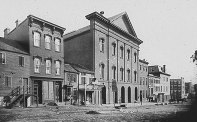
Fords Theatre – 1865- NARA
~ Patron: I need a video of President Lincoln’s assassination. Me: You mean President Kennedy’s assassination? Patron: No. Lincoln. You know, the Civil
War? My teacher told me I could get extra credit if I could bring in a video showing the actual assassination.
~ I need to check out all your books on biomes so no one else in my class can finish their reports.~ Lynn Schofield-Dahl – Boulder City Library – NV
~ I’m doing a term paper and need information comparing and contrasting the 3 Stooges with the 4 Evangelists in the Bible. ~ I need direction on how to get to Valhalla, the home of the gods, on a bicycle. ~ Do pimentos grow in olives? ~ What is the average size of a lawn in Beirut?
~ 2 part question -(early 90s): Everyone knows AIDS came from Africa. It was transimitted by animals and carried over to animals in the US. At one point, everyone will die of AIDS except for small, furry animals that look like the Muppets. How did Jim Henson know to design his Muppets to look like the small furry animals that will survive the AIDS epidemic?~ I saw a documentary on TV about a type of tree frog that is going extinct. This tree frog looks like Kermit the Frog, by Jim Henson. How did Jim Henson know to design Kermit so he would look like this type of tree frog? Editor’s note: Ms. Piggy conspiracy?
~ I need film of Abraham Lincoln giving the Gettysburg Address. ~ Becky Tatar – Aurora, IL

Annunciation – Dirck Bouts
~ I was recently asked for photographs of angels. When I tried to clarify and see if paintings would do the woman got upset, called me stupid and asked for someone else to help her. 🙂 To my knowledge, she did not get any photographs out of the next librarian either.
~ I once overheard: “Do you have books on booby-traps? I need to catch the damned Mexicans who keep stealing my chickens. I heard those Viet-Gongs were real good at booby-traps.” I laughed too hard to help the poor librarian who was trying to explain that the man was responsible for anyone who was maimed on his property before handing him several references for web sites.~ Terry Ann Lawler – Burton Barr Library – AZ
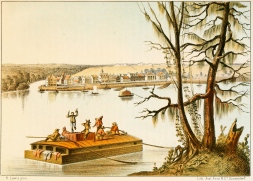
Bayou Sacra Luisiana – Henry Lewis 1854
~ Patron asks for an aerial view of local landmark, Nottoway Plantation. Peering quizzically at the GoogleEarth image, she asks, “What’s that brown stuff all along there?” “That’s the Mississippi River,” I reply. “Why isn’t it blue?” “It’s called the Mighty Muddy Mississippi because of all the sediment.” “Is there any way you can make it blue?”~ Audrey Jo DeVillier – Iberville Parish Library – LA
~ “When was the first recorded use of the word ‘love’ in any language?”~ Ann S. Owens – Sacramento Public Library – CA
~ Do you have any books on Chanukkah and other foreign Christmas holidays? ~ My son needs a book for school. The author’s last name is Chaucer–I don’t remember his first name. ~ What was the date that God kicked the bad angels out of Heaven?~ Kevin O’Kelly – Somerville Public Library – MA
~ This one was over the phone: “I have a book about William Shakespeare that I would like to sell. It is very old, it even has photos of him in it!~ Terry Dohrn – Fruitland Park Library – FL
~ I need a photograph, not a painting, of the meteor hitting the earth and killing off the dinosaurs. ~ Not exactly a one-liner but close: I need a picture of a Georgia Cherokee teepee. (Librarian: The Cherokees didn’t live in teepees.) I need a picture of a teepee that Cherokees would have lived in if they did make teepees. ~ I need information on the war, you know, the one where everyone got killed. ~ Another close one: DO you have anything besides “Learn Spanish in 30 days”? I need to learn it by tomorrow’s test.~ Dusty Snipes Grès – Ohoopee Regional Library – GA

Fool’s Cap Map of the World
~ We had someone once ask for a photograph of a dragon. Not a picture or drawing or painting but a photograph. ~ I also had a high school student ask for the book Ibid. I asked her where she got the title from and sure enough she showed me a footnote in a book. She would not believe me when I told her it was referring to the previous footnote until I showed her the sample in a Turabian style manual ~ Meg Van Patten – Baldwinsville Public Library – New York
~ This one sticks out: when in academia I got this urgent call: “My son has read every book there is and now he wants to read The Clavicles of Solomon, We can’t find it anywhere!” I told her that could only help with the Canticles (Song of Solomon)… I know we touch people’s spirits but I hope when still in their bodies 😉 ~ Shahin Shoar – Arlington Public Library Columbus, OH
~ I once had a patron complain because our color copier wouldn’t make color copies of his black and white Resume. I never did figure out exactly what he was expecting.~ Michael Gregory – Campbell County Public Library – KY
~ My all-time favorite reference question was the Santa Fe kid who wanted to do a report on pirates in New Mexico. ~ Another fine one was the woman looking for a book on how to choose a lottery number.~ Miriam Bobkoff – Peninsula College Library – Port Angeles
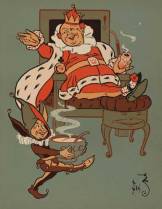
Old King Cole
~ Several years ago, a young man called to find out if the library was a government suppository. ~ And there was a woman calling from Georgia wanting to know if we had any information about an Inglewood business, the Los Angeles Kings. (For the sports-challenged: the Kings are a hockey team, who used to play in the Forum, a sports arena a few blocks from the library. That year [and not last year] they had made it to the Stanley Cup finals. They lost.)~ Sue Kamm – Los Angeles, CA
~ I was once asked for a color photo of Christ.~ Christine Lind Hage – Rochester Hills Public Library
~ Not a question I received, but I remember a story from another librarian who was asked for a map of all the lost gold mines in the Rockies. ~ And the tale of a Black librarian with whom I worked, who was asked for a mailing list of white supremacist organizations. “I gave it to him,” the librarian said, “But ewww.”
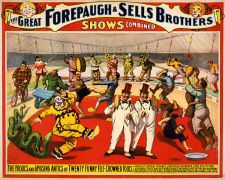
Step Right this Way
~ And, for real, when I worked at Baraboo, Wisconsin’s circus museum, I was asked whether we might have a photo of George Washington at the very first US circus in 1793.
I gently mentioned that photography was not invented until about the 1840s, and because of that, the requester wouldn’t find any photographs of George at any event, let alone at John Bill Rickett‘s original one in Philadelphia. “Oh. Right.”~ Erin Foley – Rio Community Library – Wisconsin
~ The library gods must have heard your plea because today I got a phone call. There’s some context to this but this question was asked: Patron on phone: What is Shakespeare? I’ve heard of it but I haven’t seen the movie. If you must know the context he called to ask about an actress and her career and when he found out that she was in Shakespeare he wanted to know what it was. ~ Katilyn Miller –Frederick County Public Libraries

Joachim Patinir – Crossing the River Styx
My friend was asked to “point out the River Styx on a map”. Seems the person asking wanted to your there.~ Liz Mcclain – Glencoe Public Library
~ We had a patron wanting to know the time. The circ clerk answered his question gesturing to the large, roman-numeraled clock nearby. He replied he couldn’t read it because he didn’t know Romanian.~ Jacque Gage – Joplin Public Library – Joplin, MO
~ Famous one-liner: “Where are the stacks?”
~ Teresa: Mam, would you like to sign up for our winter reading club for adults, Cabin Fever?
Woman: What do I have to do?
Tersesa: Rate all the books you read.
Woman: But I didn’t like the last one.
Tersesa: That’s okay. You don’t have to like them all.
Woman: I only want to enter the books I liked…
~ Leah: I love my new WiFi detector t-shirt!
Scott @IT: We should give one to the director at North Pocono. Maybe then we can pin down the source of their WiFi problems. “Call us if your shirt goes on or turns off.” Come to think of it…that doesn’t sound good, does it?
~ I called our local printer to get a rough estimate on printing book marks.
Leah: How much would 300 book marks cost to print?
Printer: In color?
Leah: Sure.
Printer: Will they bleed?
Leah (baffled): I HOPE not…. It’s YOUR paper!~ Leah Ducato Rudolph – Abington Community Library
~ Several years ago someone asked me for a picture of a cross-section of a banana showing the seeds. I finally found one, but it wasn’t easy.~ Holly Hebert – The Brentwood Library – TN
~ Patron – “I’m looking for information on the Sultana Indians”
Me (after a long and fruitless search) – “where did you get this reference?”
Patron – “I dreamed about them.”~ Lisa Richland – Floyd Memorial Library – NY

Beethoven looking a bit peeved
~ Two favorites from here… The High Rockies of need… (Hierarchies of need) ~ And that song, Furry Lace (Fur Elise)~ Karen E. Probst – Appleton Public Library
~ I’d like a sound recording of real dinosaurs. ~ If I make recipes from a diabetic cookbook, will it give me diabetes? ~ Susan Hunt – Aboite Branch Library- Fort Wayne, IN
~ I once got asked where our gynecology department was. I had to bite my tongue to keep from laughing out loud as I explained where our genealogy department is.~ Deborah Bryan – Topeka and Shawnee County Public Library
~ Not a patron one liner but….I had a staff member ask me one day, Where are the eBooks shelved?
~ Patron: Where can I find the books on um, you know motivation and stuff? Me: (looking on the catalogue), I see there is one here, shall we go over and have a look? Patron: Nah, I can’t be bothered just yet, maybe tomorrow. I swear – true story. ~ Lisa Pritchard – New Zealand
~ At my previous library out west, we once got a call from a patron asking if we had the “Anals of Wyoming” in our periodical collection. ~ Stephen Sarazin – Aston Public Library – PA

Gutenberg Bible – Epistle of St Jerome – Patron Saint of Librarians
~ Henry Huntington, railroad millionaire, established the famous Huntington Library and Art Collection in his estate in San Marino, California. It’s home to many rare books, including a Gutenberg Bible. About 50 miles away is Huntington Beach, California, named for Henry Huntington when he put a rail line through to the town.I used to work at the Huntington Beach Public Library, and for years confused tourists would come to the desk to ask to see our Gutenberg Bible. Best one-liner ever? Look at the computer screen and say, “Sorry, that’s checked out today.” Maybe a little too much background needed for this to be a great one liner, but we loved it.~ Roger Hiles – Library Services Manager Arcadia Public Library – CA
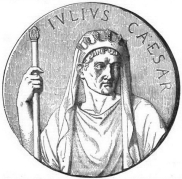
Et tu, Granny?
~ Just saw a written information request: “About epilepsy or Grandma Ceazer. Just been diagnosed.”~ Anne Felix – Grand Prairie, TX
~ I have one from when my son worked at a grocery store. A woman requested “bee honey” so they escorted her to the honey aisle. “But which one is bee honey?” They told her that only bees make honey, and she didn’t believe them. In fact, she thought they were making fun of her. (Which they did, in spades, after she left the store.)~ Cheryl Coovert – Lexington, KY
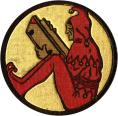
Reading Jester
Clover honey is made by clover.
Wild flower honey is made by wild flowers.
Spelling bees make word honey.
And WHERE do you think quilts come from?~ Chris Rippel – Central Kansas Library System – Kansas
Editor’s note: Everyone on Publib knows that the best Quilts come from BiblioQuilters such as Nann Blaine Hilyard and Sana Moulder.

Please join us on BestofPublib Facebook
The Publib Archives
The Publib archives from the former Webjunction listserve and the current OCLC service are available here: Archives

Filed under: Book selection, Collection development, current topics, Electronic books, History of Libraries, Humor, Intellectual freedom, Library Marketing, Library Profession, On-line, Outreach, Photo-duplication, Public relations, Public Services, Public-academic, Web librarianship | 43 Comments »
![]()
![]()




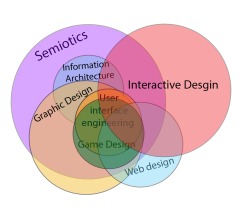













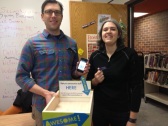
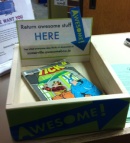
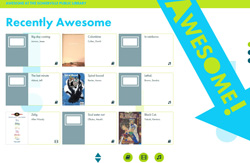
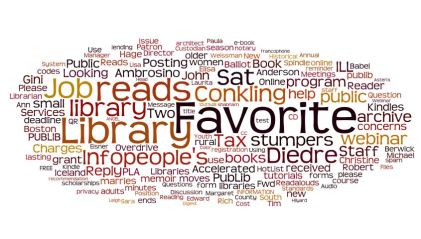



 To thank Karen Schneider for her years as co-moderator of PubLib, we are going to give her a
To thank Karen Schneider for her years as co-moderator of PubLib, we are going to give her a 








 Scary new road for Librarians
Scary new road for Librarians
 As if Kindle and Nook and Sony did not create a big enough impact, Google’s
As if Kindle and Nook and Sony did not create a big enough impact, Google’s 


